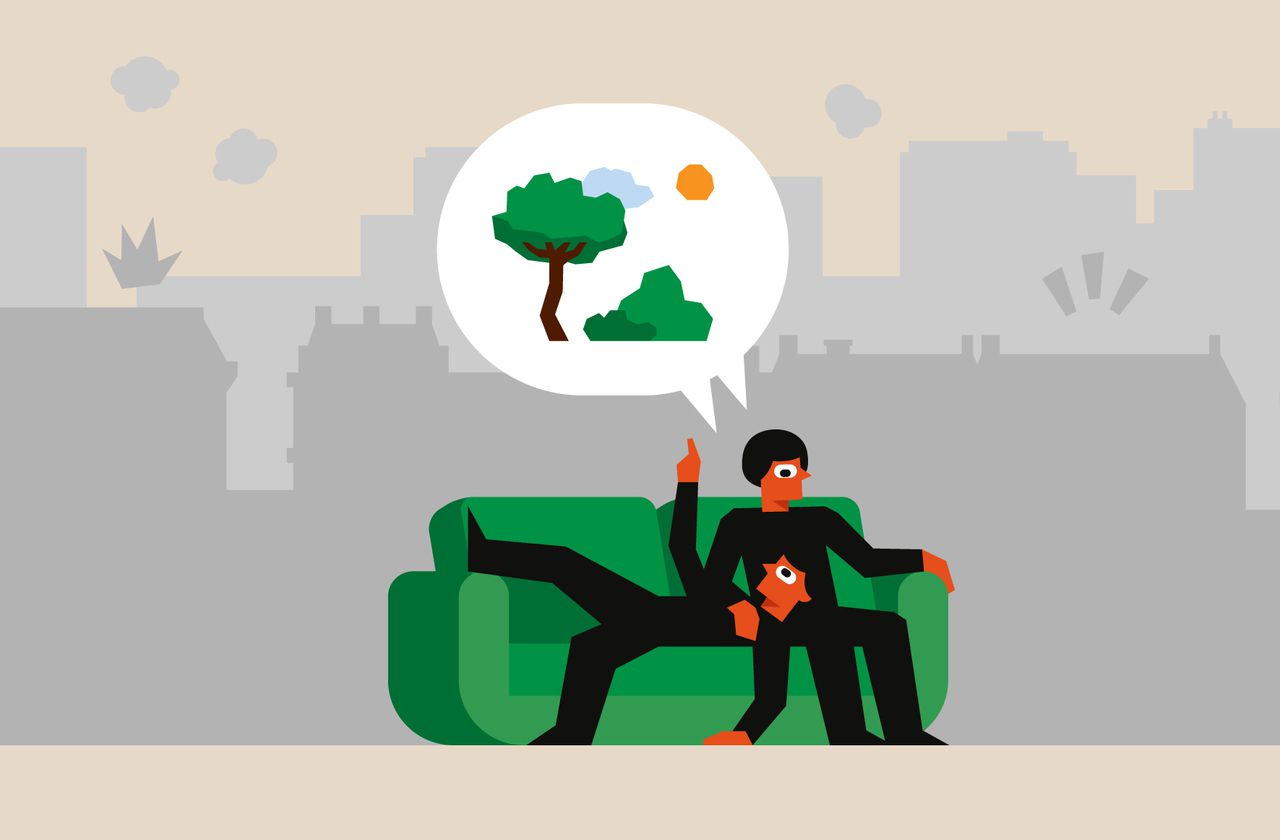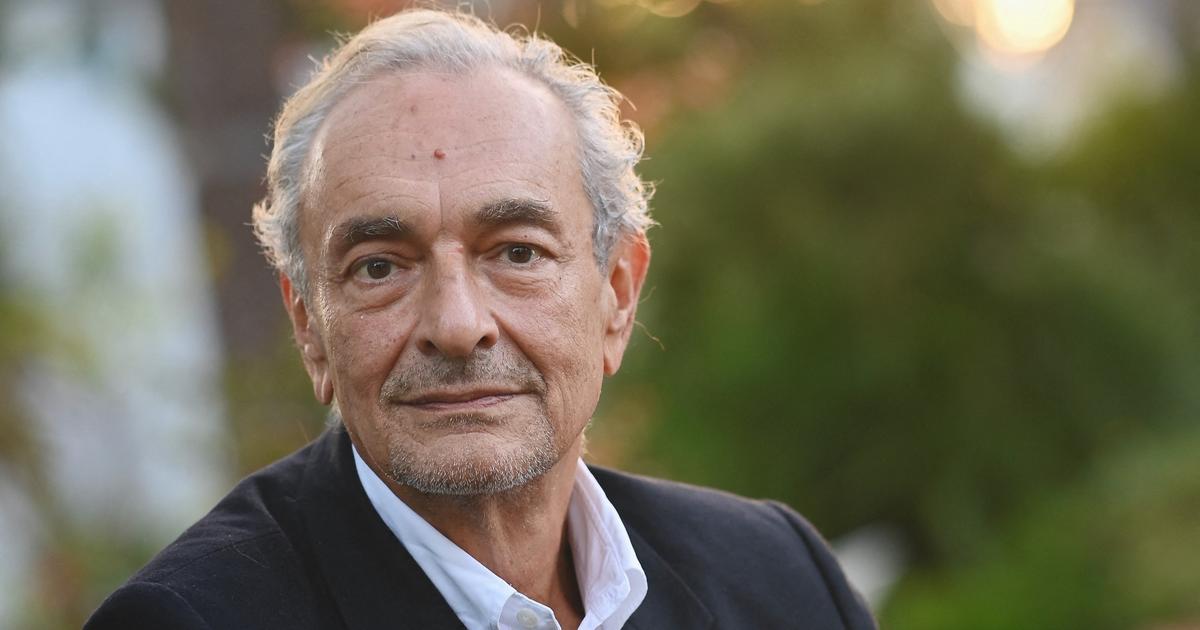"We were going crazy". In the midst of a coronavirus pandemic, Fanny and her husband Nicolas, confined with their two children in a 50 m² apartment in the 9th arrondissement of Paris, felt an urgent need to escape. The desire to buy real estate had arisen in the mind of this general manager of a cybersecurity company and this founder of a start-up before the crisis. But they were thinking then of intramural Paris. As a result of this period of isolation experienced between teleworking, distance education and the occupation of children, it was a house in Montreuil that they finally chose after confinement.
“It was very complicated during confinement with the children, we went crazy. So, we went through all the real estate ads in detail, we needed that morally, remembers Fanny. We wanted to refocus on our family after spending more time with our children and we realized that we wanted to telecommute more. This requires space and a pleasant living environment. When the ban on travel of more than 100 km was lifted, the 42-year-old woman and her 39-year-old husband were seduced by the house, located around 45 minutes from their place of work.
And their story is not an isolated case. According to a survey carried out in May by the Paris I leave you platform, which helps Parisians to settle in the regions, 54% of Ile-de-France residents are ready to leave as soon as possible, compared to 38% before confinement. Their motivations: the search for proximity to nature for 59% of them, for a life with less stress (59%) or simpler (57%). The crisis gave 56% of those questioned the opportunity to “step back and take stock of their lives”, according to the study. Click or accelerate, the Covid-19 crisis played a decisive role in these initial desires.
The narrowness of urban housing
As with Fanny and Nicolas, the desire to flee has grown for those who live in small habitats without an exterior. Monique Eleb, psychologist, sociologist and habitat specialist, confirms that the confinement has made city dwellers aware of the narrowness of urban housing. “We have been breathing badly in big cities for twenty years, but here we have linked all the problematic elements to each other. It is the first time that young French people have spent so much time at home! ", She says.
Main cause of the desire to escape according to her, the relationship between the inside and the outside. “This feeling of suffocation, of not being able to leave your home for such a long time, is unbearable. Not to mention the "thousand little troubles linked to the configuration of the accommodation, such as the light, the closed kitchens, the single entrance," she continues.
Generalized exasperation
This is also what Jessica, production assistant in the entertainment company Les Visitors du soir and Jonathan, employee at Universal Music in Paris, found. Up to now settled in four, with their two children of 8 and 4 years old in a Parisian apartment of forty-five square meters in Montmartre, they bought a house of… 120 m2 in Saint-Rémy-de-Provence, in the Bouches -du-Rhône.
Because in addition to the smallness of their apartment, it is a daily irritation against "the evenings glued to others in the RER, the incessant noise, the dirt, the discomfort, the density, the pollution" which pushed them to leave Paris, says Jessica, 32. “A few days ago, I went to pick up my daughter from school and there was sputum on the bench where she was sitting. These situations repeat themselves… ”And to continue:“ The first click was a day when we were on vacation in Vietnam. The four of us were seated in front of a sunset. We told ourselves that our daily life had little meaning in Paris, far from nature, and that it was not that, life, ”points Jessica. We no longer enjoy living in this city. "
Jonathan is delighted with their family choice: “We are going to settle in a house under the olive trees, with the song of the cicadas, and a swimming pool. All for € 350,000, compared to € 1,200 per month's rent in Paris. " For sociologist Jean Viard, this exasperation towards the city corresponds to "a desire to shout very loudly that this is wrong". "In this immense period of instability, prior to the coronavirus crisis, it is like an immense need for freedom," he analyzes.
"We didn't see ourselves coming back"
But while the majority of Parisians have passed confinement in the city, thousands of them - 451,000 according to an INSEE study published on May 18 - went into exile in the countryside. Like Mathieu, 50, and Marie, 47, both creative directors in advertising in Paris. “During the confinement, we went to our country house in Seine-et-Marne, explains Marie, we had goats, a large garden and a vegetable patch. The house quickly transformed us, we were no longer the same ”.
Newsletter - The essentials of the news
Every morning, the news seen by Le ParisienI'm registering
Your email address is collected by Le Parisien to allow you to receive our news and commercial offers. Find out more
Her husband, Mathieu, claims to have changed his lifestyle: “I go to bed at 11 pm and get up with the sun, it's incredible. We didn't see ourselves coming back to Paris. Besides, when we came back for a few days to look for things in our apartment in the 10th arrondissement, we didn't even feel at home, it was weird. The couple then embarked on real estate searches to leave Paris, and buy a 160 m2 house in Pantin, with a garden. "We are happy to launch ourselves for a better quality of life", rejoices Marie. But there is no question of moving too far from the capital: “The advantage of living in Pantin is that we stay close to the capital. We can take advantage of its advantages, without its disadvantages. "
Closer to nature
The desire to reconnect with nature also led Lucie, a 28-year-old Parisian, to live in her house in Vexin, near Normandy, where she had spent confinement with four friends, and her girlfriend, 1:30 from Paris. After six years in the capital as an employee of the Wake up school, a training school, she negotiated telework four days out of five with her employer to "be closer to nature," she says. Until now, the young woman went to this house every weekend; it has now reversed this functioning by going to Paris on Thursday only.
The trigger? "Experimenting with this country life for a long time, confinement," she says without hesitation. Today, the attractiveness of Paris is diminishing in my eyes. The glasses every night, the theater, the cinema, the excitement no longer please me as much as before. Especially since it seems to me that around me, everyone is starting to leave Paris. Now is a good time to leave. Her roommates, too, began this green expatriation after confinement. "I am well surrounded there, I have a rich social life and I am not bored," she says, as a promise of a new life.
The episodes of our series "Leaving Paris":









